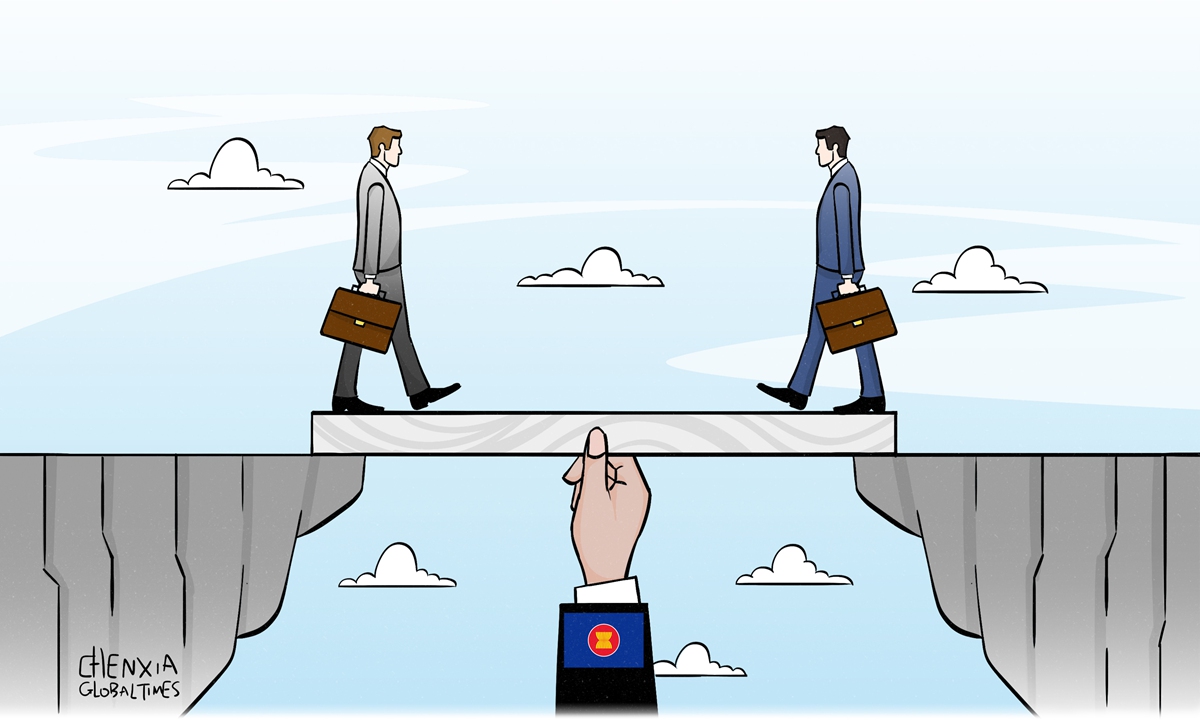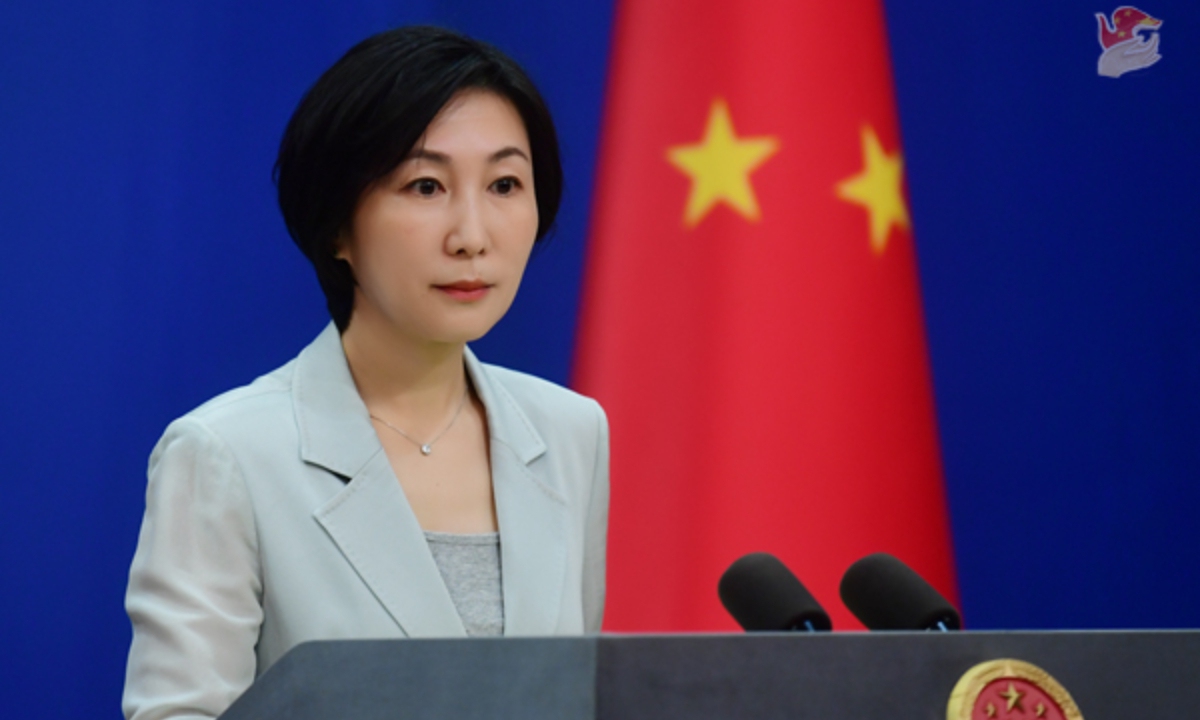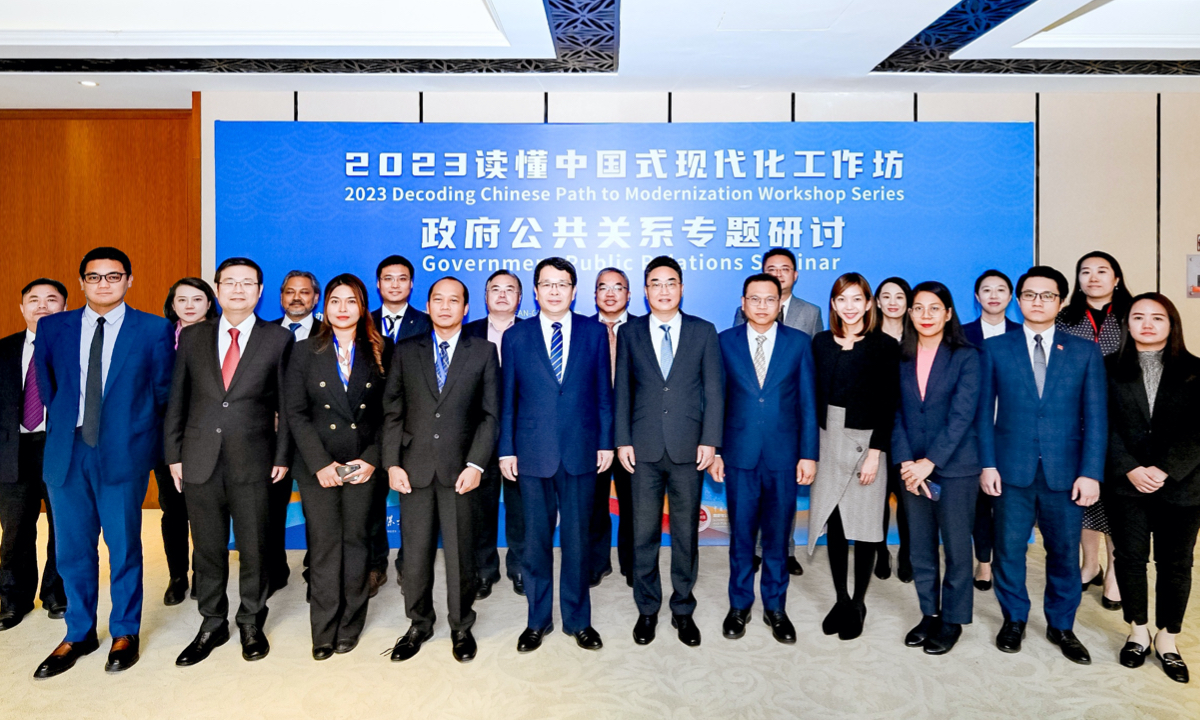
Illustration: Chen Xia/GT
Editor's Note:Today's world is more complex than it used to be, it's thus not easy to achieve lasting peace, Choi Shing Kwok (Choi), director and CEO of Singapore-based research center ISEAS - Yusof Ishak Institute, former permanent secretary at Singapore's Ministry of Transport, and the Ministry of the Environment and Water Resources, told Global Times (GT) reporter Li Aixin in an interview during the 10th Beijing Xiangshan Forum. "There are many problems that can only be resolved once the US and China work together," Choi said, while expressing that hopefully, broad-minded people can prevail in future US elections to set the stage for the relationship to stabilize and improve.
GT: What impressed you the most during the 10th Beijing Xiangshan Forum, and how do you view China's role in future global security governance?
Choi: The theme for the forum is common security and lasting peace. Lasting peace is a highly aspirational goal that every nation desires. During the conference, there was a lot of discussion on principles that can lead us to lasting peace. The issue is how to turn that into practical policies and measures because today's world is much more complex than it used to be. It's not easy to achieve lasting peace.
Common security is something that needs to be a bit more unpacked. Very often, when one country feels more secure, another may feel less secure. The attainment of a level of security requires a compromise between two sides. Realistically, within a long-term framework, details on how to settle disputes are also needed in order to reach a mutually agreed level of security between different nations.
China plays an important role by offering many proposals such as the Global Security Initiative, Global Development Initiative and Global Civilization Initiative, all of which contain very sound principles. The region is looking forward to seeing more consistency of those principles in the interactions.
GT: How do you evaluate China-Singapore relations?
Choi: China-Singapore relations are very good, excellent. It is, shall we say, like climbing up a pyramid. You need to keep climbing whenever there are changes in the environment, as you may see a new horizon.
After the last visit by Prime Minister Lee Hsien Loong to China, during which he visited three cities, namely Guangzhou, Bo'ao, and Beijing, agreements were reached to build a new forward-looking relationship. There are more peaks to climb and more things to do together in new areas, particularly the digital economy, sustainable green economy and science.
The future also looks bright in terms of how the two sides can work together on the military side. The China-Singapore military relationship has been progressing. During the pandemic, some activities stopped, but now the pandemic is over and they are resuming. For example, the two navies had an exchange recently. At the top level, Singapore's Defense Minister Ng Eng Hen came here for this forum. Personal relationships are critical. That's why Singapore's ministers make a point of coming for exchanges at the central governmental level, provincial level, or municipal level to get to know individual leaders and work together with them.
China is in a new phase of economic growth, trying to find a way to resolve some of its current problems, such as those in the property sector, and, to some extent, to shift from investment to consumption. As that transition takes place, I think Singapore can continue to participate in that, help overcome the newer problems and we can grow together.
GT: Where do you think China-US ties are headed in the short term, given a potential bilateral summit during the APEC leaders' meeting, and also in the long term?
Choi: China-US competition will be there for quite a long time because the competition is structural. The key is how to manage it.
For the next year - if the two presidents meet in San Francisco - I believe it looks promising. I believe the meeting can help reduce tensions and will not allow the relationship to fall further. That would be good for the two countries, and for the rest of the world, because it will prevent tensions from leading to misunderstanding, which could lead to conflict.
I think the current Biden administration officials are aware of how important the relationship is and are trying to avoid extreme radical views that may be held by others. But we will see how the election campaigns go next year. There will be a lot of sound and noise. Then it will depend on who is elected next year. Hopefully, even in an uncertain scenario, broad-minded people can prevail, and help set the stage for the relationship to continue to be stable and keep improving thereafter.
There are many problems that can only be resolved once the US and China work together, such as climate change and preventing over-investment in arms, because this takes away economic resources. If the US and China can have enough of a relationship and trust to solve these common problems, that will set the stage for cooperation on other matters.
GT: How will Singapore and ASEAN countries cope with or play a role in future China-US ties?
Choi: ASEAN has its own challenges. ASEAN has to play its role, not so much as a mediator, but in advocating better China-US relations while maintaining good relations with both, so that it can be the stabilizer for the region, and also a voice for common sense so that both sides steer away from radical and extreme responses.
I believe that the US and China both want to get along and don't want things to deteriorate. Competition will be a driving force for both, but that can be a good thing. The most important thing is to prevent an accident. That's something that ASEAN can keep urging the two sides to do; that is in ASEAN's interests, and also in the interests of the rest of the world.
GT: One recent hot topic of discussion has been about a new multipolar global order. Do you think this new order is arriving? Will the US adjust to it?
Choi: I think we already have a multipolar world. It is not like the world we had after the end of WWII, and it's not like the world we had in the 1990s. I personally believe that the sound thinkers in the US understand this and the people who would potentially be office holders understand this. Recently, the Biden administration officials have said that they are willing to tweak the structures that exist today, structures like the WTO and IMF, in order to better reflect the economic weight of different countries today, as compared with that at the end of the WWII, to give more voice to countries that have grown. It is, to me, a reflection of the understanding that this is a multipolar world. I think adjustments can take place that both sides can be comfortable with, to better reflect this multipolar world, which is a reality nobody can deny and one that all can implicitly accept.


